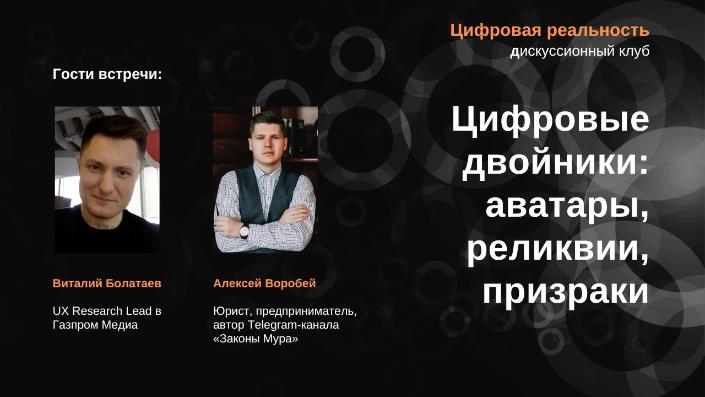
The new season of the "Digital Reality" discussion meetings began with a topic that is now trending but also has a lot of subtle nuances.
The debate at the meeting on September 8 focused on digital twins of both living and deceased people. What is a digital twin? What shapes may it take and what functions can it perform? Are we referring to the twin as a unique way to represent oneself online or as a means of communicating with someone with whom it is impossible to do so in the real world?
The following questions were raised during the stream:
- Digital footprints: what are they, why and how do we leave them, where is it being used now and what are the potential use cases in the future?
- Digitization of personality/consciousness: what are our limitations in technologies, cases (text bots, visual images in VR, etc.).
- Ethics of interaction with digital twins. Psychological, social and legal issues. Processing, storage and use of digital twin data.
- Various practices for dealing with accounts/digital objects of deceased people.
“A living person and a machine differ fundamentally in that a living person is finite, whereas all of the data that a person has created remains indefinitely in accounts and the outside world. What to do with them after his death also poses a number of issues,” according to Vitaly Bolataev, UX Research Lead at Gazprom Media.
The discussion turned out to be dynamic and fruitful despite the complexity and sensitivity of the subject at hand, according to Ilona Stadnik, curator of youth programs at the Coordination Center for TLD .RU/.PФ.
"Of course, you can live without thinking about such things, but humanity is already dealing with the issue of the hundreds of thousands of accounts on the Internet that belong to people who are no longer able to assert their legal rights. The problem with accounts is not as clear if everyone knows what to do and how to act with ordinary property that is left over after a person's death,” continued Ilona Stadnik.
The full stream is available here.




